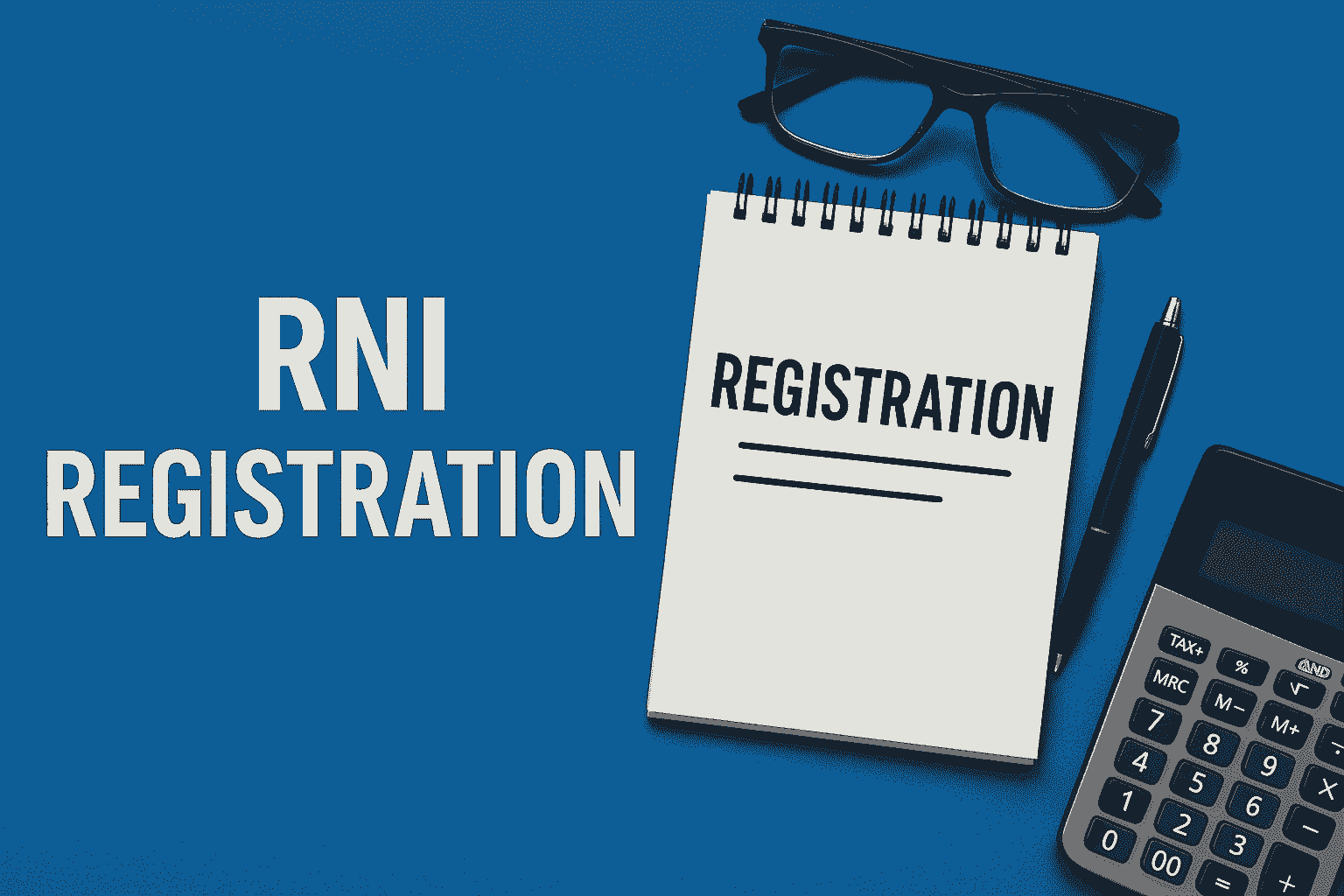


Learn everything about RNI registration in India — process, documents, benefits, and legal requirements for starting a newspaper or magazine.
If you’re planning to launch a newspaper, magazine, or any periodical in India, you must complete the RNI (Registrar of Newspapers for India) Registration process. This legal step ensures that your publication complies with Indian laws and is officially recognized by the government.
Let’s explore the purpose, process, and benefits of RNI registration in simple terms.
RNI Registration is the approval required to legally publish a newspaper, magazine, or periodical in India. The Registrar of Newspapers for India (RNI), under the Ministry of Information and Broadcasting, regulates this process.
It ensures that the publication is original, meets legal standards, and follows the Press and Registration of Books Act, 1867.
Anyone planning to publish:
A printed newspaper
A magazine or journal
A periodical (weekly, fortnightly, monthly, etc.)
A digital publication with print circulation
This applies to individuals, firms, NGOs, institutions, and companies involved in print media.
Legal Requirement: It’s mandatory under Indian law.
Title Protection: Prevents others from using the same publication title.
Credibility: Adds trust among readers, advertisers, and government bodies.
Eligibility for Benefits: Allows access to government advertising and postal discounts.
Here’s a breakdown of the steps involved:
You must first apply for title verification online via the RNI portal. This step ensures your publication’s name is unique.
Submit 5 title options (in order of preference).
Select language, periodicity, and place of publication.
Once approved, you’ll get a Title Verification Letter (valid for 2 years).
After receiving the verified title, the publisher must file a declaration (Form I) before the District Magistrate (DM) of the publication’s location.
Details required include:
Title
Language
Publisher and printer details
Place of printing and publishing
Frequency (daily/weekly/monthly)
The DM will authenticate the declaration.
Once the declaration is authenticated, the publisher must print and release the first issue:
Within 42 days (for dailies)
Within 90 days (for other publications)
Ensure that the issue includes the correct imprint line (printer, publisher, and place details).
After releasing the first issue, submit the following to RNI:
Authenticated declaration
Title verification letter
First printed issue copy
Printing agreement (if printer is different from publisher)
ID proof and passport-size photo
Application form
Title Verification Letter
Form I Declaration (authenticated)
Copy of First Issue
Printing Agreement
ID and Address Proof
Passport-size Photograph
Affidavit (in some cases)
If everything is in order, RNI will issue a Certificate of Registration. This certificate is mandatory for:
Publishing subsequent issues
Registering for government ads
Getting postal rate benefits
On average, the RNI registration process may take:
30–60 days for title verification
1–2 weeks for declaration processing
2–4 weeks after document submission for the final certificate
Using a title that’s already taken
Delay in publishing the first issue
Missing or incorrect imprint line
Incomplete documentation
Failing to submit within the allowed time
Official Recognition
Advertising Opportunities from DAVP and government departments
Postal Concessions for distribution
Legal Protection for your publication’s title
Improved Credibility in the industry
RNI registration is a mandatory and important process for anyone planning to start a publication in India. With the right documentation and timely steps, you can get your publication legally recognized and enjoy the benefits that come with it.
For a smooth experience, many publishers opt for professional services that handle the paperwork and communication with authorities.
Whether you’re launching a regional newspaper or a national magazine, getting your RNI certificate is your first step toward legal publishing in India.
